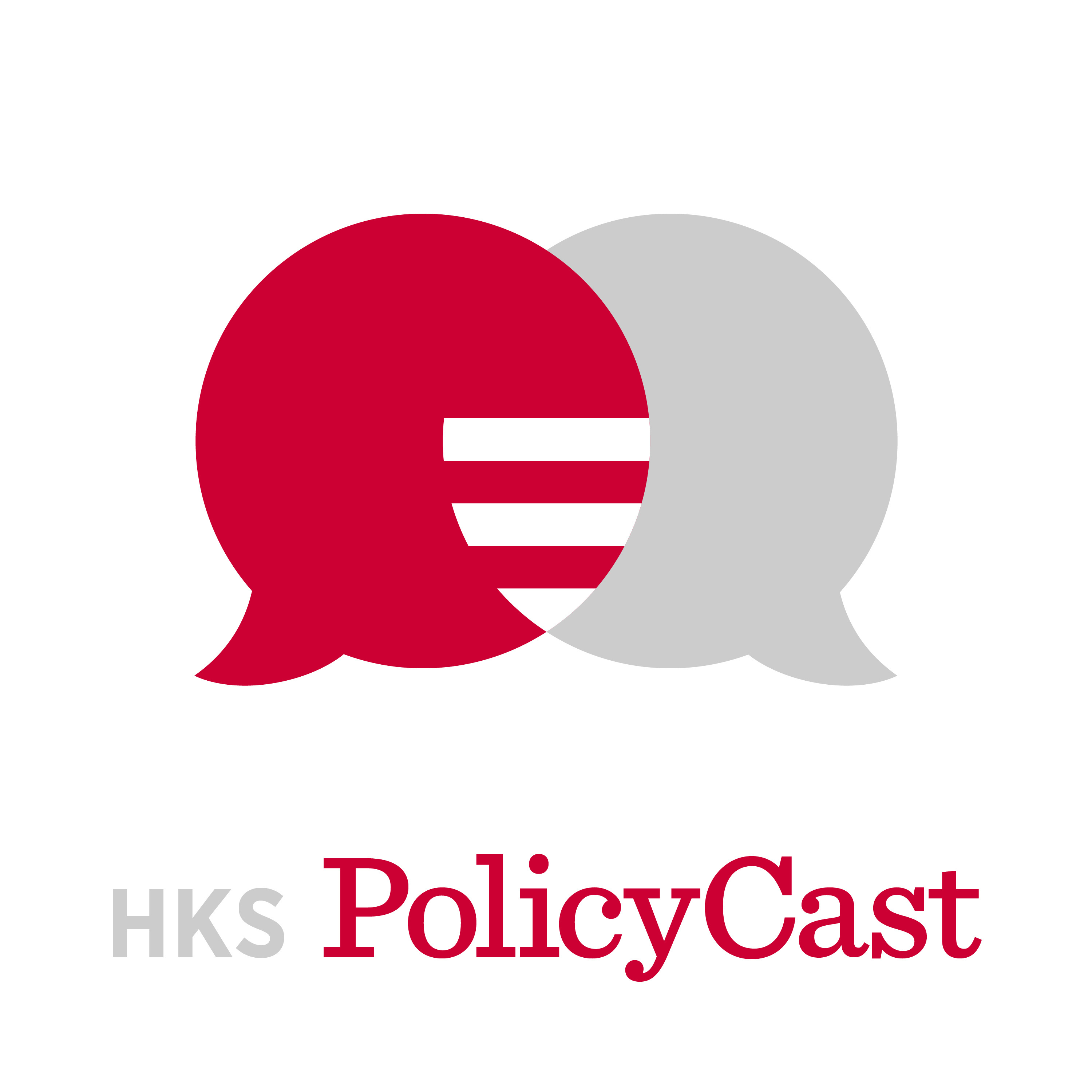

PolicyCast
Harvard Kennedy School
PolicyCast explores research-based policy solutions to the big problems and issues we're facing in our society and our world. Host Ralph Ranalli talks with leading Harvard University academics and researchers, visiting scholars, dignitaries, and world leaders. PolicyCast is produced at the Kennedy School of Government at Harvard University.
Episodes
Mentioned books

Mar 18, 2015 • 26min
Somalia’s First Female President?
HKS Mid-Career MPA Mason Fellow Fadumo Dayib recounts her story growing up as a Somali refugee and explains how her life’s experience has pushed her to mount a 2016 run for president in her homeland.

Mar 11, 2015 • 25min
The End of the American Dream?
HKS Professor Robert Putnam explains how the United States has become a class-segregated society with a growing stratification between the educated and uneducated. He describes how upward mobility has nearly vanished over the last few decades and what can be done to turn things around.

Mar 4, 2015 • 23min
Startup Government
Aneesh Chopra, a Walter Shorenstein Media and Democracy Fellow at the Shorenstein Center who served as the United States' first Chief Technology Officer, describes how the federal government, historically a leader in new technologies, fell behind in embracing innovation. He details the challenges government agencies have historically faced and how a combination of new policies and tech-savvy leadership have the potential to set things back on course.

Feb 25, 2015 • 13min
How Partisan is the US Judiciary?
HKS Assistant Professor Maya Sen describes new research breaking down political leanings within the United States judiciary. The analyses exposes a partisan divide between lawyers and judges and finds a link between certain political leanings and specific law schools.

Feb 18, 2015 • 14min
An Ethical Perspective on the Brian Williams Scandal
HKS Lecturer Jeffrey Seglin of the Kennedy School’s Shorenstein Center on Media, Politics and Public Policy discusses the ethical hot water Brian Williams has recently found himself in. He breaks down the reputational harm that has been done to both Williams and NBC, the steps NBC needs to take to restore its viewers’ faith and whether journalism and celebrity can coexist effectively.

Feb 11, 2015 • 19min
The Other Effects of Torture
HKS Lecturer Doug Johnson, Director of the Carr Center for Human Rights Policy, goes beyond the debate over the efficacy of torture to look at the consequences of its use in legal, military and international relations contexts.

Feb 4, 2015 • 12min
Big Data; Better Cities
HKS Professor Stephen Goldsmith, Director of the Data-Smart City Solutions Project at the Kennedy School’s Ash Center, describes how city and state governments can improve service to citizens by harnessing new technologies.

Jan 28, 2015 • 22min
Measuring Human Ability
Ron Suskind’s world was shaken when his son Owen was diagnosed with autism at the age of three. Now, more than 20 years later, his experience has helped kick off new research into how we as a society can better integrate those with developmental disabilities. In this episode, Ron advocates for the establishment of new benchmarks for human ability and achievement and explains how policy can help or hinder that effort.

Dec 17, 2014 • 22min
Designing Smarter Policy
HKS Professor Asim Khwaja, Co-Director of the Evidence for Policy Design program, explains the benefits of bringing academics into the field to develop policy in collaboration with practitioners.

Dec 10, 2014 • 17min
Is Transparency Bad for Politics?
Professor Michael Ignatieff of the Shorenstein Center for Media, Politics and Public Policy makes the case that increased transparency in government makes it harder for politicians to find compromise by relating his experience as the Leader of the Opposition in the Canadian parliament. He also laments the tendency to argue over the standing of those who make arguments on various issues, as opposed to the substance of the issues themselves.
Professor Ignatieff discussed “Tensions in Transparency” with Professor David King at IDEASpHERE.


